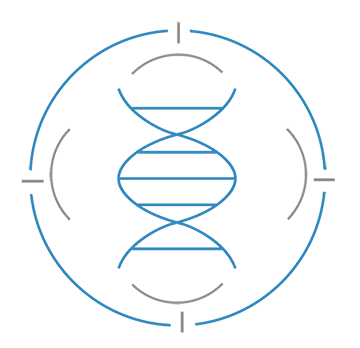Select a legal funding service to get started.
Attorney Requests
→
Lawsuit Loans
→
Litigation Funding
→
Personal Injury Loans
→
Settled Case Loans
→
Surgery Funding
→
Or just call us at 888.711.3599 to apply.
Baker Street Funding strives to be the most proficient legal funding partner to plaintiffs’ attorneys by offering a broad spectrum of wholesale litigation capital, driven by our unique footprint. Working together, we offer innovative legal financing solutions to law firms, plaintiffs & companies with an active case.
GET 2% MONTHLY
NON-COMPOUNDING
INTEREST RATES




Special relationship based pricing for all law firm referred cases.
Baker Street Funding is the only company in the United States providing special relationship-based pricing for law firm referred cases.
2% – 3 % monthly non-compounding.
For all attorney referrals.
Baker Street Funding is pleased to announce an exclusive offer for attorneys and law firms: funding for settled mass tort cases at a competitive rate of 2.25% simple interest, plus an underwriting fee.
Take advantage of this opportunity to enhance your firm’s financial flexibility.
Baker Street Funding was designed to strategically connect select legal funding opportunities with our extensive network of sophisticated partners and staff with the utmost discretion to you. We strive to provide best-in-class funding services and execution excellence on the most complex cases across the US.
Legal funding agreements are typically referred to as law firm loans, law firm financing, attorney loans, or case cost funding. However, they do not work like traditional loans.
Attorney case funding is a non-recourse investment into a law firm’s future receivables of a single case or a portfolio of cases. Attorney funding is the perfect financing solution for capital-intensive cases and helps law firms assuage the risk of investing their own capital into them.
All of that, and then some.

Unlike most legal funding companies that solely provide capital for post-settled cases, Baker Street Funding offers litigation funding for attorneys in both the pre and post-settlement timeline of a case.

Our innovative lawsuit financing solutions for contingency fee-based attorneys can provide you with unique cash flow and profitability solutions—for less. Work with us and get clear and transparent pricing so you always know what you’re paying.

At Baker Street Funding, we actively maintain strong relationships with top professional allocators in the United States who take a wholistic approach to the cases we analyze.

Our underwriters use a combined skill set to protect your interests while taking in all factors of the litigation, including past cases that you have successfully litigated.
At Baker Street Funding, we are committed to building strong partnerships with attorneys nationwide, so that you receive swift and dependable legal funding solutions.
We understand that you and your clients need quick access to capital to help drive the maximum amount of value possible out of your cases. To meet this need, we offer a range of financing options, including both pre and post-settlement funding for plaintiffs and tailored funding solutions for attorneys, with competitive rates that other funders can’t match.
You strive to be an advocate for your clients, and we want to be an advocate for you and your practice. Our bespoke financing options for plaintiffs’ firms have placed us on top of the best-rated funding companies across the nation.

At Baker Street Funding we recognize that contingency fees are solid collateral and can secure you the money you need now. Our funding and lines of credit allow you to leverage your future case fees to obtain immediate liquidity and pay for litigation-related expenses on new cases in as little as 72 hours.

Plaintiff clients can receive funding from their pending settlements as a lump sum or monthly installments in as little as 24 hours. Rates for clients start at 2.95% monthly non-compounding.

Our team of underwriters are all former attorneys with decades of contingency fee based litigation experience and can help you grow your practice.

We only charge interest on funds drawn on your line of credit and there are no pre-payment penalties, draw or maintenance fees. Get interest rates at 2% simple per month.
Legal funding can be a key asset to contingency fee-based lawyers by helping smooth out their income stream, which can otherwise be extremely difficult to manage.
Our legal funding options can be customized for each attorney to help fit their time frame demands, case budget, and capital needs. Our solutions help you gain access to capital in less than 72 hours so you can keep building cases without waiting for more mature litigation to settle.
Most law firms that we work with utilize our pre-settlement and post-settlement funding options either on a case-by-case basis or based on their current portfolio of receivables. Some attorneys may need a more specialized solution, so we can offer the perfectly designed solution for your unique needs.
With our bespoke financial opportunities, you never have to provide traditional collateral such as personal guarantees or real estate. We take your receivables as well as current and former case inventories into account to help structure non-recourse funding agreements.
There is no limitation to how you use the capital you take from us, so rest assured that you will be able to enhance your practice in any way you see fit.
Our approval process is quick and easy. We purchase a portion of your future receivables and provide you with either cash or a line of credit immediately. Baker Street Funding normally purchases anywhere from 10-50% of your future fees to secure our investment into your practice. We can make all the funds immediately available or structure monthly investment payments with staggering rates of return.

Once we receive your legal funding request, first, we will review your application package including your basic information and list of cases.

We will then then proceed with our due diligence and set up a conference call to discuss any questions regarding your portfolio of cases or litigation experience. If you are requesting funding for a client, we will set up a conference call with you to help value the case.

Final terms are generated, and a legal funding contract is sent for your approval.

Once the funding agreement is approved and executed, we will wire out the funds to your business account that day or your client's bank account via wire or FedEx next-day check.
Florida Office:
780 5th Ave. South, Suite # 200, Naples, Florida 34102
New York Office:
77 Water Street, 7th Floor, New York, New York 10005
Open now (888) 711-3599
Fax #: (518) 500-3056
Baker Street Funding helps navigate the waters of high-profile commercial litigation financing all the way to success. The expansion of the commercial litigation funding space has opened up a tremendous opportunity for plaintiffs and investors alike. A Baker Street Funding team of advisors, former litigators and executives help investors, plaintiffs, and attorneys navigate high profile corporate litigation waters while providing everyone with the tools needed for success.
For attorneys and their firms, we provide a hedge against contingency fees and a way to help manage the cost of litigating a large corporate dispute.
For companies that hold strong and meritorious claims, but cannot bear the financial burden of the pursuit of those claims, litigation funding provides an effective way to eliminate the high capital outlay and risk of business litigation.
For investors, litigation funding provides a rare opportunity to invest into a negatively-correlated asset with high return potential and diversity.
Plaintiff – attorney legal funding types: We offer two types of legal funding for plaintiffs. These types of funding are pre-settlement funding and post-settlement funding available for clients both before and after a signed settlement agreement has been dually executed.
Most personal injury cases take up to two years to settle and payout. At this time, your client could be out of work and in need of funds for basic living expenses and medical bills. When plaintiffs have exhausted all other financing options available to them, we recommend looking into plaintiff pre-settlement funding. While the risk profile of any case could be high, cases that have yet to settle carry a large amount of risk. This is why the cost of pre-settlement funding is sometimes high. We price each case individually in a non-compounding manner taking into account the risk of the case not settling. Since our contracts are strictly non-recourse and based on the merits of the case, not the financial profile of the plaintiff, we are able to provide much-needed capital to individuals who may not be able to get financing otherwise. Still, our rates are much lower than other funding firms for law firms who refer us cases.
Since settlements are typically not distributed immediately upon signing the settlement agreement, plaintiffs may see themselves in need of short-term bridge capital. For plaintiffs in this situation, post-settlement funding may be an option. While the risk profile of a settled case is low, there is still a chance that the obligor does not pay. Our non-recourse funding agreements take this into account and give plaintiffs rates priced appropriately for that risk. If you are interested in pre or post-settlement funding please contact us at (888) 711-3599.
Attorneys’ fees can be delayed for several reasons like administrative issues, appeals, or slow-paying defendants. You can facilitate your future fees with Baker Street Funding’s post-settlement attorney financing; we can provide a portion of your future receivables today. We see contingency fees as the lifeblood of any legal practice and can provide you with financing arrangements that you can not get from any bank, all with the five-star service and low rates that we pride ourselves on. Use attorney post-settlement funding to expedite your future fees.
Our post-settlement funding program is tailor-made for attorneys to gain early access to future collectible fees on settled claims. We see your contingency fees as your most valuable asset, and we can provide more liquidity and quicker access to those fees than any traditional financial institution can.
Our quick financing process is streamlined to provide you with quick access to non-recourse financing. No monthly payments are required, and repayment is made upon collection. To illustrate how our process works, you can look at a mass tort-focused firm that has settled 100 claims. The firm’s combined fees are $2 million. Rather than wait to receive payment as settlement checks arrive, the firm can access up to $1.6 million of those fees immediately through our post-settlement funding program.
At Baker Street Funding, our surgery funding process is quick and easy. All of our underwriters are former personal injury attorneys with extensive experience. They perform a quick review of the underlying facts surrounding the case and make a fast decision. With a quick response time and high speed of service, we regularly help personal injury victims receive the medical care they need ranging from minimally invasive surgeries to complex surgical procedures while strengthening your personal injury case.
As one of the most experienced pre-settlement funders, we can provide uninsured clients with the cash they need to pay for medical expenses.
Most doctors will not perform procedures on lien so help your clients get the care they deserve and the most out of their settlement. We offer surgery funding for plaintiffs unable to afford medical procedures due to the privatization of health insurance or personal injury protection coverage.
This solution works as well for attorneys as it does for plaintiffs in need of surgery because an attorney can then obtain a lien or a letter of protection post-operation.
There is no risk for surgeons as they are directly paid in full pre-operation. Baker Street Funding is committed to providing quality healthcare for plaintiffs that can not afford to do so on their own. Additionally, medical providers are paid immediately for their service at a fair and equitable rate.
Most of the law firms we work with utilize our pre-and post-settlement funding options either on a case-by-case basis or based on their current receivables portfolio. Some attorneys may need a more specialized solution. With that in mind, we also provide voucher funding and attorney lines of credit; feel free to give us a call at (888) 711-3599 to discuss further what fits you best.
Many attorneys that approach us are appointed as public defenders (also known as indigent defense attorneys). These attorneys are on the state’s payroll and receive their legal fees directly from the state that they practice in. Sometimes, when there are economic downturns or other financial issues that the state is subjected to, vouchers are used as a promissory note to pay past-due attorneys fees. We have seen attorneys have to wait months to be able to redeem their vouchers. Our voucher funding program works similarly to our post-settlement funding agreements. Once a voucher has been issued to the attorney, he can then contact us, and we will advance a portion of the voucher’s face value. We will then be paid back from the state when they are able.
Our attorney lines of credit function almost exactly the same as you would see at your local bank branch. The key difference with our attorney LOCs is that we can do more due diligence into your practice and thus can provide much larger lines than a bank normally can. Because our legal funding solutions were developed by attorneys, we are familiar with what it takes to run a successful contingency fee-based practice. As expected, as your client portfolio increases, so would your line of credit. We look at it from the perspective of your firm being a living, breathing thing and our attorney lines of credit being the heartbeat that helps it grow. Our LOCs will increase in lockstep with your practice as it gets new clients and successfully litigates cases.
Attorney funding is a type of legal funding that was created specifically for contingency fee-based attorneys, representing personal injury plaintiffs and large commercial litigation lawsuits.
There are multiple different subsets of attorney funding, including case cost financing, voucher funding, attorney lines of credit, and pre or post-settlement fee advances.
Legal Funding, (also known as litigation financing, legal lending, attorney funding, attorney loans, law firm loans, and case cost funding) was developed by attorneys and for attorneys to provide them with access to capital to run their firms, and litigate cases to their fullest potential.
This type of financing does not require recourse; hence, it provides no risk to you or your client.
The payment of the investment is only to be made upon monetary recovery of the case.
A typical case in the litigation process does not go to trial, and it takes an average of 20 months to settle. When litigating a case, that timeline extends, and there is uncertainty surrounding whether you will successfully win a judgment.
This process makes running a successful practice challenging, and attorneys need some sort of financial backstop to help cover costs until their next case settles.
Contingency fee attorneys are not guaranteed any economic benefit unless they win their case. If an attorney invests years of time, effort, and capital into a case that settles in favor of the defendant, they walk away with nothing.
Law firms who are looking for lines of credit tend to approach their local or national financial institution. These banks may provide you with a business loan or a LOC (line of credit). The problem with these products is twofold. They do not take into account the intricacies of running a legal practice and, most times, do not provide as enough capital as is needed.
The other issue is that you will need to personally guarantee the loan unless your firm has had a long-standing relationship with the bank. That means you are risking the money you’ve made to secure the funds you need to make in the future.
With Baker Street Funding, those worries are taken care of. Our attorney funding process is based on your current and former case portfolio. We also take into account intangible things, such as your previously settled cases. Our funding agreements are non-recourse, and thus you never have to personally guarantee our contracts.
While cases involving mass torts, minors, medical malpractice, or delayed settlements are extremely profitable for the attorneys involved, they do run the risk of running out of money before the litigation ends; this is why attorney legal funding from Baker Street Funding may be beneficial to you.
Attorney financing allows you to free up required capital to cover day-to-day costs that can be difficult for a contingency fee-based firm to cover. Legal funding can become a great asset to your practice by helping you access cash flow to help pay expenses while waiting for a case to settle or go to litigation.
While each attorney and firm’s situation is different, we have created a bespoke solution for every type of financial need.
For example, we can help you manage your portfolio of cases with portfolio funding and provide capital based on that portfolio to help with payroll, office space, and marketing capital. Or, we can offer case-by-case specific financing to help cover discovery costs, expert witness costs, and administrative and litigation expenses.
Baker Street Funding will advance a minimum of $1,500 in funding to plaintiffs involved in non-settled claims. On settled claims we require that the gross amount due to the plaintiff to be no less than $50,000.
At Baker Street Funding, we strive to provide you with the best rates available. Our contracts are priced case-by-case but generally will be 3% a month non-compounding for plaintiff loans.
We provide reduced rates for clients referred to us by their attorney or medical provider.
Select a legal funding service to get started.
Attorney Requests
→
Lawsuit Loans
→
Litigation Funding
→
Personal Injury Loans
→
Settled Case Loans
→
Surgery Funding
→
Or just call us at 888.711.3599 to apply.